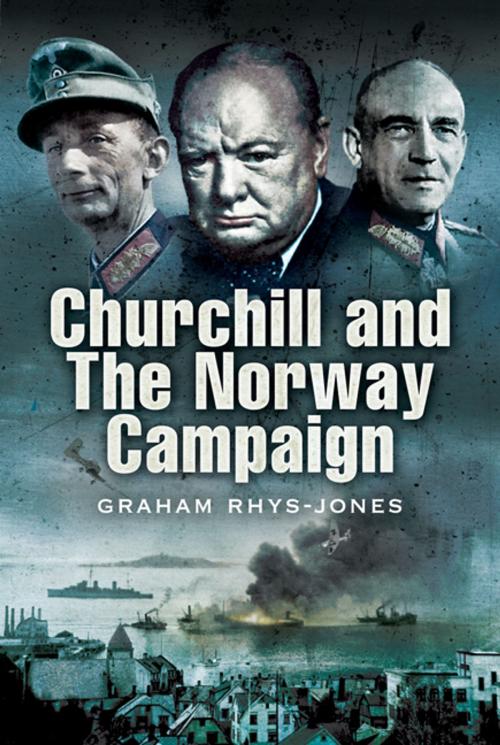| Author: | Graham Rhys-Jones | ISBN: | 9781844689293 |
| Publisher: | Pen and Sword | Publication: | October 30, 2008 |
| Imprint: | Pen and Sword | Language: | English |
| Author: | Graham Rhys-Jones |
| ISBN: | 9781844689293 |
| Publisher: | Pen and Sword |
| Publication: | October 30, 2008 |
| Imprint: | Pen and Sword |
| Language: | English |
On 9 April 1940, the German Armed Forces seized Norway and Denmark in an operation remarkable for its precision and boldness. The Chamberlain War Cabinet was caught on the hop and responded with ineptitude.
While this book examines the making of grand strategy it is first and foremost the story of this ill-fated campaign. It describes the attempts of naval and military commanders to respond to daily shifts in government policy and to grasp the methods of a new kind of enemy – one which seemed willing to take extraordinary risks and which had regained a level of tactical mobility not seen since Napoleonic times.
Norway has been eclipsed by the larger disasters which followed shortly after notably the evacuation from Dunkirk and the fall of France. Although there is a substantial body of printed material touching on the subject, few accounts provide a clear view of the campaign as a whole and fewer still are easy to read. While the book concentrates on the higher levels of decision-making (War Cabinets, Chiefs of Staff, and Theater Commanders), it gives equal emphasis to land, sea and air operations and the men who under took them and provides, as far as possible, an even balance between British and German perspectives.
On 9 April 1940, the German Armed Forces seized Norway and Denmark in an operation remarkable for its precision and boldness. The Chamberlain War Cabinet was caught on the hop and responded with ineptitude.
While this book examines the making of grand strategy it is first and foremost the story of this ill-fated campaign. It describes the attempts of naval and military commanders to respond to daily shifts in government policy and to grasp the methods of a new kind of enemy – one which seemed willing to take extraordinary risks and which had regained a level of tactical mobility not seen since Napoleonic times.
Norway has been eclipsed by the larger disasters which followed shortly after notably the evacuation from Dunkirk and the fall of France. Although there is a substantial body of printed material touching on the subject, few accounts provide a clear view of the campaign as a whole and fewer still are easy to read. While the book concentrates on the higher levels of decision-making (War Cabinets, Chiefs of Staff, and Theater Commanders), it gives equal emphasis to land, sea and air operations and the men who under took them and provides, as far as possible, an even balance between British and German perspectives.















